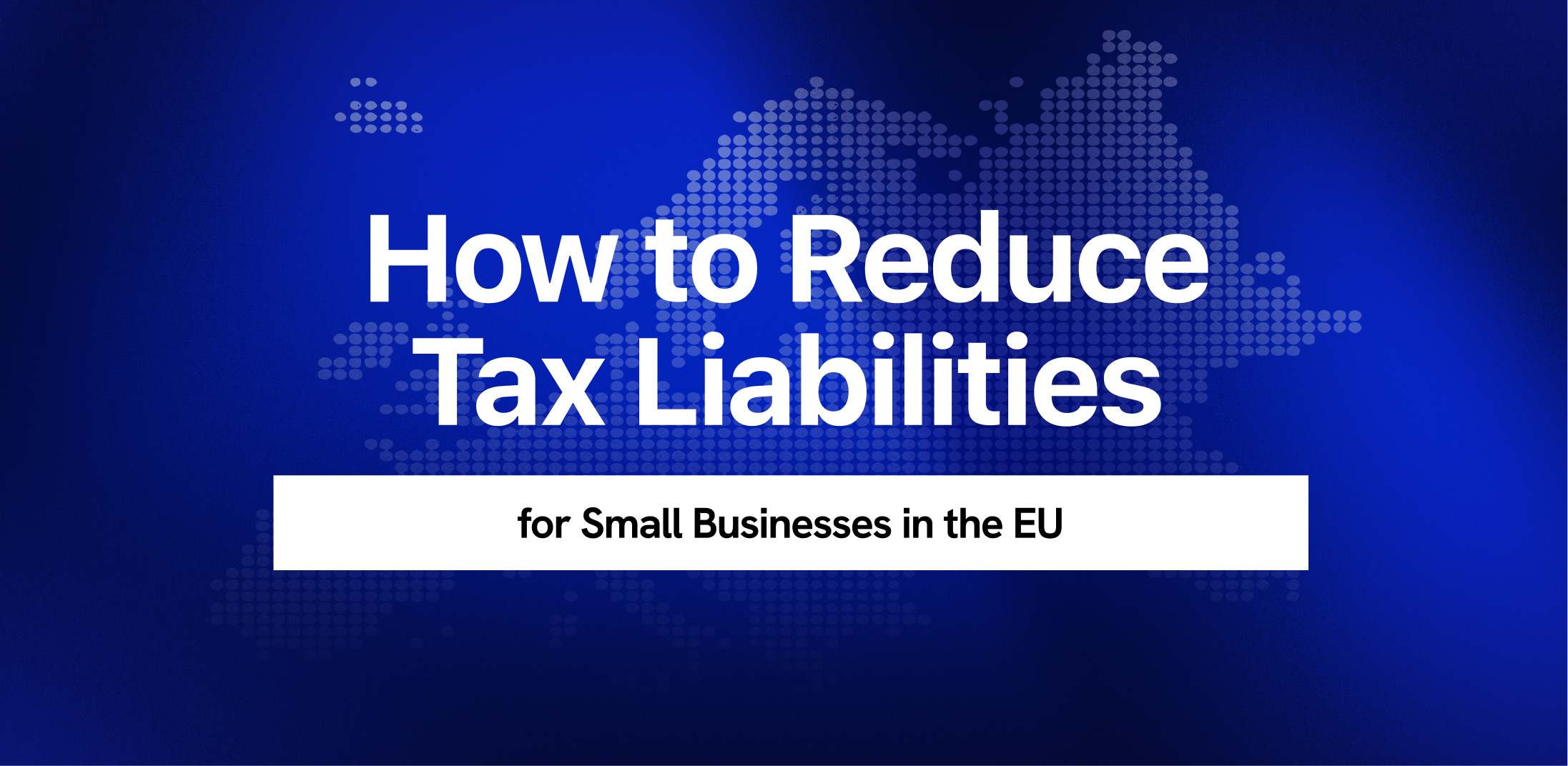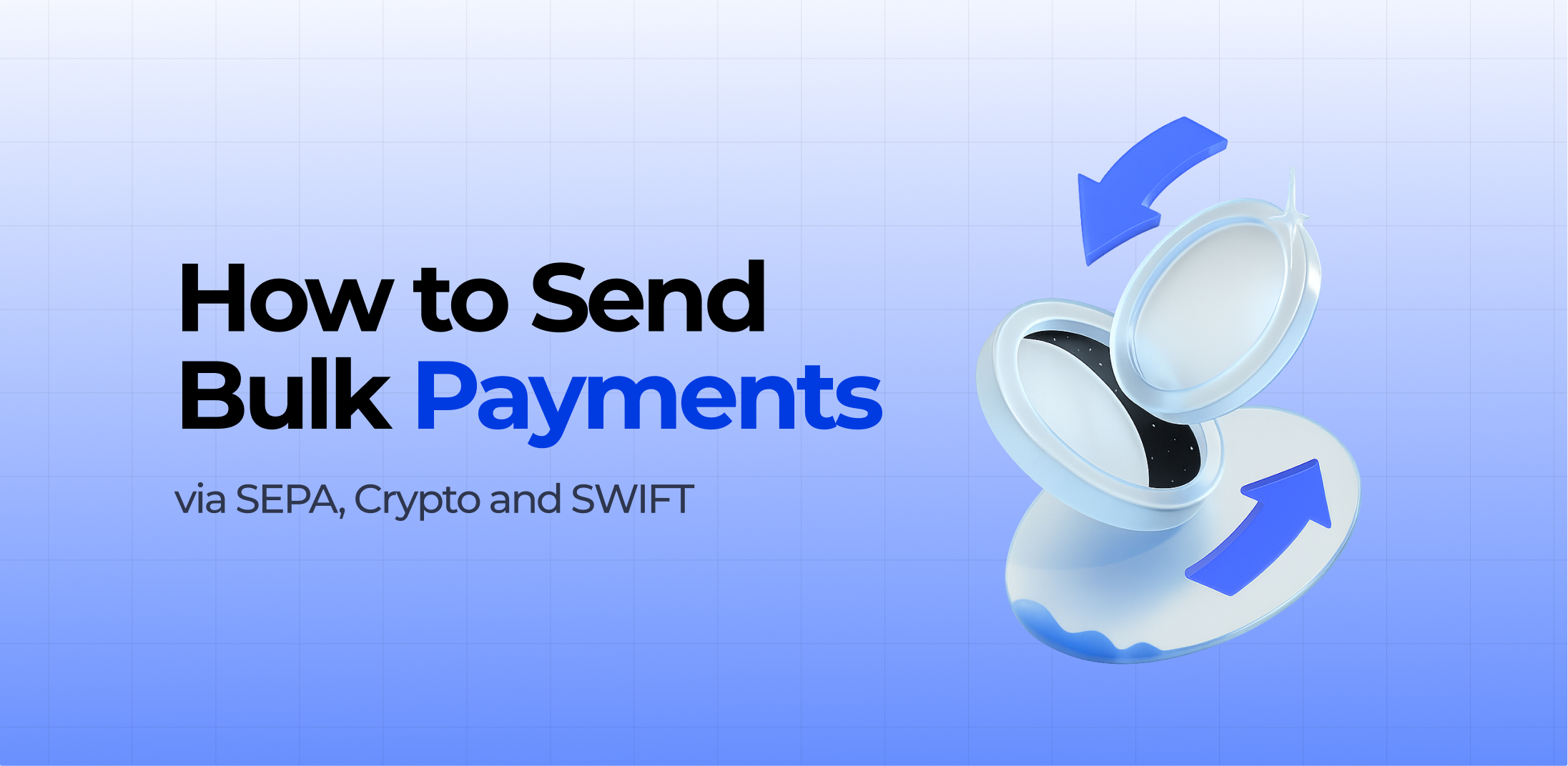Tax planning plays a vital role for small businesses in the EU. It is where navigating intricate tax laws and maintaining compliance can be overwhelming. Many SME firms encounter challenges such as elevated VAT rates, limited tax management resources, and the complexities of avoiding double taxation in cross-border dealings.
This article offers practical strategies to reduce tax liabilities while ensuring regulatory compliance. As a reliable provider of financial solutions, PaySaxas equips businesses with the tools and knowledge needed to streamline tax processes, cut expenses, and foster sustainable growth in today’s competitive environment. Uncover valuable tips to reduce your tax burden and achieve success.
Understanding Tax Liabilities for Small Businesses in the EU
For small businesses in the EU, understanding tax liabilities is crucial for managing expenses and maintaining compliance with intricate regulations. Taxes like VAT, corporate tax, and income tax can heavily influence operations. It highlights the importance of competent planning. Fortunately, the EU provides various tax benefits for small businesses in EU. It includes deductions, credits, and localized incentives aimed at fostering growth.
By comprehending their tax responsibilities and available opportunities, SME can refine financial strategies, reduce liabilities, and leverage these benefits fully. The following sections delve into the essential aspects of tax planning designed specifically for small businesses operating in the EU.
What Are Tax Liabilities?
Tax liabilities represent the financial responsibilities a business has to governmental authorities. It includes taxes like income tax, VAT (Value Added Tax), and corporate tax. These liabilities stem from profits, sales, or other operational activities. They are crucial for adhering to local and EU regulations. Tax liabilities can greatly impact cash flow, profitability, and growth opportunities.
Failure to manage these obligations effectively may result in fines, audits, or damage to a business’s reputation. A clear understanding of tax liabilities enables SME member firms to plan payments, uncover deduction opportunities, and adopt strategies to reduce their tax burden. It ensures financial health and sustainable growth.
Key Tax Regulations in the EU
Small businesses in the EU face a challenging landscape of both national and EU-wide tax regulations. EU policies aim to standardize taxation, particularly with VAT regulations for entrepreneurs. They promote fair competition and facilitate cross-border transactions. At the same time, individual member states retain authority over taxes like corporate and income tax, resulting in significant differences across regions.
This dual structure requires SMEs to stay aware of both local tax requirements and EU directives, such as VAT rules for cross-border activities. By understanding these complexities, firms can avoid fines, leverage tax benefits, and maintain compliance while thriving within the EU’s diverse regulatory environment.
Common Tax Deductions and Credits Available to SMEs
EU companies can ease their tax obligations by utilizing deductions and credits designed to foster innovation and growth. Deduction opportunities include R&D costs, capital expenditures, energy-saving initiatives, and workforce training programs. Tax credits, such as those for hiring from underrepresented groups or implementing eco-friendly practices, provide direct reductions in payable taxes.
They deliver substantial financial benefits. Effectively leveraging these incentives is essential for enhancing cash flow and channeling resources into business expansion. By actively exploring and applying for available tax benefits, SMEs can lower liabilities, boost profits, and gain a stronger position in today’s competitive market landscape.
Strategies to Reduce Tax Liabilities

Adopting effective strategies to lower tax liabilities is crucial for small businesses focused on improving their financial health. A primary tactic is to fully utilize available deductions and credits, including those for R&D, capital investments, and employee development. Additionally, structuring the business in a tax-efficient manner, such as through incorporation or the creation of holding companies, can reduce tax exposure.
Tax deferral techniques, like accelerating expenses or postponing income, also help lower taxable income. Collaborating with tax experts and staying informed about evolving regulations ensures compliance while uncovering further tax-saving opportunities. By taking a strategic, proactive approach, even startup firms can minimize their tax obligations and strengthen their long-term financial position.
Optimize Business Structure
Selecting an appropriate legal entity, such as a sole proprietorship or LLC, provides numerous benefits for local firms. The chosen structure influences tax obligations, liability, and access to VAT exemptions, particularly for enterprises whose revenues must not exceed designated thresholds. Companies engaged in cross-border operations within the EU can take advantage of favorable jurisdictions to lower tax burdens and streamline VAT compliance.
Additionally, such operations open doors to regional incentives and tax treaties designed to facilitate trade. By tailoring their business structure to align with strategic goals, SMEs can reduce tax liabilities, optimize resources, and maintain compliance with both EU and local tax regulations.
Leverage Tax Treaties
Tax treaties among EU member states aim to prevent double taxation. It ensures that businesses are not taxed twice on the same income when operating in multiple countries. These agreements define clear rules for allocating taxing rights and reducing overlapping liabilities. By leveraging these treaties, small businesses can access reduced withholding taxes on cross-border payments like interest, royalties, and dividends.
Many treaties also offer a streamlined scheme for claiming tax relief, helping businesses improve cash flow and reduce overall expenses. Small startup firms engaged in international operations should seek professional advice to fully utilize treaty benefits, optimize their tax strategies, and maintain compliance with both domestic and foreign tax regulations.
Maximize Allowable Deductions
Strategic tax planning for European startups requires identifying and claiming all eligible deductions to minimize tax burdens. Deductible expenses typically include office supplies, advertising costs, employee wages, business travel, and investments in infrastructure or technology. Startups can also access specific deductions for research and development projects or eco-friendly initiatives.
To maximize these benefits, maintaining accurate records is crucial. The well-organized receipts, invoices, and expense documentation help ensure compliance and reduce audit risks. Digital tools can simplify tracking and management.
Invest in Tax-Efficient Assets
Small firms can effectively lower their tax obligations by prioritizing investments in assets eligible for tax incentives. They include green technologies or innovative equipment. Across many EU member states, businesses benefit from deductions or credits designed to encourage sustainability. Depreciation and amortization techniques further enhance these advantages by distributing asset costs over time, thereby reducing taxable income in phases.
For instance, accelerated depreciation programs allow for larger deductions during initial years. By choosing tax-efficient assets, SMEs can achieve a dual advantage. It improves their environmental or technological footprint while strategically optimizing their tax liabilities and ensuring sustainable growth.
Utilize Tax Deferrals and Timing
Timing strategies and tax deferrals are effective methods for small businesses to manage their liabilities and enhance cash flow. Deferring income, such as shifting revenue recognition to the following tax year, or accelerating expenses allows businesses to reduce their taxable income for the current period.
These strategies are particularly valuable for aligning tax obligations with financial priorities like reinvestment or covering key operational costs. Examples include timing major purchases before year-end or strategically scheduling asset sales.
Take Advantage of VAT Exemptions and Refunds
Small firms can reduce their tax liabilities by utilizing VAT exemptions and refunds. In many EU countries, businesses under specific revenue thresholds can benefit from VAT exemptions. It lowers their tax obligations. For SMEs involved in cross border b2c sales, it’s crucial to understand the VAT thresholds and registration requirements to avoid overpaying taxes.
Moreover, businesses engaged in international transactions can claim VAT refunds for cross-border dealings, as long as they meet the necessary conditions. This process generally involves providing documentation and adhering to the guidelines of the relevant tax authorities.
Leveraging Technology and Professional Support

EU small businesses can enhance their tax savings by embracing technology and professional expertise. Modern tools for accounting, tax calculations, and record-keeping simplify tax management. They improve accuracy and efficiency.
Furthermore, tax professionals, such as accountants and legal advisors, offer essential insights into navigating complex regulations. It implements productive tax-saving strategies. In the sections ahead, we’ll explore how leveraging technology and expert support enables SMEs to optimize their tax strategies, minimize errors, and stay compliant with the ever-changing tax landscape.
Adopt Tax Management Software
Utilizing tax management software brings significant advantages to small businesses, such as improved efficiency, precision, and time savings. Automation streamlines tasks like tax calculations, VAT tracking, and reporting. It minimizes errors and ensures businesses stay compliant with constantly changing regulations.
By adopting tax management systems, businesses can reduce administrative tasks, enabling teams to focus on growth and strategy. Popular tools for SMEs include QuickBooks, Xero, and TaxJar. They offer robust features for managing tax obligations, generating reports, and meeting deadlines. These platforms are vital for any small business aiming to enhance financial management and simplify tax processes.
Consult a Tax Professional or Advisor
Seeking advice from a tax professional is essential for small businesses to navigate tax regulations and maximize savings. Tax experts offer tailored assistance in understanding complex tax laws. They identify potential deductions, and take advantage of available incentives. They ensure businesses remain compliant with changing regulations while avoiding costly errors.
By partnering with advisors, SMEs can develop productive tax strategies that minimize liabilities and support long-term financial goals. Whether addressing routine tax matters or more complex financial planning, professional guidance plays a vital role in optimizing a business’s tax strategy and improving its financial standing.
Staying Compliant with Tax Regulations
Maintaining compliance with tax regulations is crucial for small businesses to avoid penalties and ensure seamless operations. Adhering to tax laws helps safeguard financial stability and enhances a company’s reputation.
This section will cover essential strategies and practices for staying compliant. It includes proper record-keeping and timely filing. By following these steps, businesses can not only fulfill their tax obligations but also unlock potential savings and foster growth opportunities.
Understanding Filing European Businesses Deadlines
For small businesses, being aware of tax filing deadlines is crucial for compliance. While the EU provides overarching deadlines, individual countries may have their own specific requirements. It’s vital to keep track of both EU-wide and local deadlines to avoid missing important dates. Late submissions can lead to fines and interest charges.
To prevent this, businesses should implement reminder systems, keep well-organized records, and use tax management software for automatic updates. Consulting a tax expert can also provide peace of mind.
Importance of Audit-Ready Startups Records
Keeping audit-ready records is vital for small businesses to maintain transparency and meet tax compliance requirements. Proper documentation of all financial transactions, including income and expenses, is crucial in the event of an audit. Digital tools like accounting software and cloud platforms can simplify the record-keeping process.
It ensures accuracy and easy retrieval of financial data. These tools can automatically categorize expenses, monitor invoices, and generate reports. It helps to minimize errors. With organized and up-to-date records, businesses can efficiently handle audit inquiries and reduce potential disruptions. It ensures compliance with both EU and local tax regulations.
Adapting to Changing Tax Laws
Staying adaptable to evolving tax laws is essential for small businesses to maintain compliance and avoid penalties. With EU tax regulations regularly undergoing updates, it is vital for businesses to stay informed to remain compliant. Keeping track of changes allows businesses to capitalize on new opportunities, avoid costly errors, and optimize their tax planning.
Useful resources include official government portals, sector-specific newsletters, and tax advisory services. Additionally, subscribing to key updates and participating in relevant workshops or webinars can equip businesses with the latest insights. It ensures they promptly adjust their strategies and operate without disruptions.
Country-Specific Tax Benefits

Small businesses in the EU can benefit greatly from country-specific tax advantages that help reduce tax liabilities. These localized incentives and deductions vary across member states. They are shaped by each country’s unique tax framework and economic priorities. By taking full advantage of these regional benefits, businesses can improve their financial standing and increase cash flow.
This section will explore a range of country-specific tax opportunities. They include credits, deductions, and programs aimed at supporting growth and sustainability. Keeping informed about these regional advantages is crucial for businesses seeking to minimize their tax burden while staying compliant with local tax laws.
Tax Incentives like One Stop Shop in Ireland, the Netherlands, and Luxembourg
Ireland, the Netherlands, and Luxembourg are highly regarded for their favorable tax policies. It makes them appealing destinations for SMEs aiming to optimize their tax strategies. Ireland is known for its low corporate tax rate. They offer generous R&D incentives that can substantially lower taxable income.
The Netherlands’ Innovation Box regime provides tax breaks on profits from innovative activities. They foster growth in tech-driven industries. Luxembourg is a popular choice for businesses managing holding companies. It provides beneficial tax treatments for intellectual property and financial services.
These countries also streamline processes for businesses with their efficient tax systems. It includes the EU’s one stop shop for VAT registration, simplifying cross-border operations and enhancing tax management.
Regional Tax Reliefs for Eastern Europe
Poland, Hungary, and Bulgaria offer significant tax incentives. It makes them attractive options for start-ups and SMEs looking to optimize their tax planning. Poland provides R&D tax credits to promote innovation, as well as income exemptions for specific categories.
Hungary stands out with its exceptionally low 9% corporate tax rate, along with favorable tax breaks for businesses investing in technology, infrastructure, and innovation. Bulgaria offers a flat 10% corporate tax rate, along with sector-specific tax exemptions and benefits for holding companies.
These countries create a supportive environment for businesses. They can reduce tax burdens and foster growth, presenting valuable opportunities for small enterprises and startups.
Conclusion
In summary, small businesses in the EU have numerous opportunities to reduce their tax liabilities by implementing good strategies. They include utilizing tax incentives, optimizing VAT exemptions, deferring income, and taking advantage of depreciation options.
Proactive tax planning is essential not only for minimizing taxes but also for fostering growth, enhancing cash flow, and ensuring long-term financial health. Staying informed about local tax regulations and using advanced tax management tools allows businesses to mitigate tax risks.
To maximize these opportunities, seeking expert guidance and leveraging resources such as PaySaxas, which simplifies payment processing and financial management, can greatly enhance tax strategy optimization.








